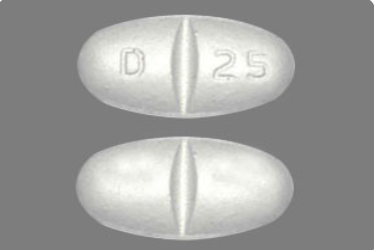NEURONTIN (Gabapentin) Overdose Symptoms, Treatment , and Prevention
A lethal dose of gabapentin was not identified in mice and rats receiving single oral doses as high as 8000 mg/kg. Signs of acute toxicity in animals included ataxia, labored breathing, ptosis, sedation, hypoactivity, or excitation.
Acute oral overdoses of NEURONTIN up to 49 grams have been reported. In these cases, double vision, slurred speech, drowsiness, lethargy, and diarrhea were observed. All patients recovered with supportive care. Coma, resolving with dialysis, has been reported in patients with chronic renal failure who were treated with NEURONTIN.
Gabapentin can be removed by hemodialysis. Although hemodialysis has not been performed in the few overdose cases reported, it may be indicated by the patient’s clinical state or in patients with significant renal impairment.
if overdose is suspected, contact a poison control center or emergency room immediately. US residents can call their local poison control center at 1-800-222-1222. Canada residents can call a provincial poison control center. Symptoms of overdose may include: severe drowsiness, slurred speech, weakness.
NEURONTIN (Gabapentin) Overdose Symptoms, Treatment , and Prevention
An overdose of Neurontin (gabapentin) can occur if taken in higher-than-prescribed doses or combined with other substances that increase its effects. Knowing the signs of overdose, treatment options, and prevention strategies is essential for safe usage.
Symptoms of Gabapentin Overdose
Gabapentin overdose symptoms can range from mild to severe and may include:
- Drowsiness and Lethargy: One of the most common signs; can progress to extreme sedation.
- Dizziness and Loss of Coordination: People may struggle with balance and experience confusion.
- Slurred Speech: Gabapentin can impair motor functions, affecting speech clarity.
- Double Vision or Blurred Vision: Visual disturbances are often reported.
- Severe Weakness and Muscle Fatigue: Can make it difficult to stand or move.
- Respiratory Depression: In severe cases, particularly if combined with opioids, gabapentin can cause slowed or shallow breathing, which can be life-threatening.
- Agitation or Confusion: Overdose can impact cognitive function, leading to confusion, irritability, and unusual behavior.
- Seizures: Paradoxically, gabapentin can trigger seizures in an overdose situation, especially in people with epilepsy.
Treatment for Gabapentin Overdose
If a gabapentin overdose is suspected, medical attention should be sought immediately. The treatment approach generally includes:
- Supportive Care: In a healthcare setting, patients will be monitored, and vital signs (heart rate, breathing rate, blood pressure) will be stabilized.
- Activated Charcoal: If the overdose is detected early (typically within an hour of ingestion), activated charcoal may be administered to reduce the body’s absorption of gabapentin.
- IV Fluids: To help support the kidneys and maintain hydration, IV fluids may be given, especially if vomiting or dehydration has occurred.
- Oxygen Support and Ventilation: In cases of respiratory depression, supplemental oxygen or even mechanical ventilation might be required.
- Hemodialysis: For severe overdoses, hemodialysis (a process that filters the blood) may be used to remove gabapentin from the bloodstream more quickly, especially in those with kidney impairment.
Prevention of Gabapentin Overdose
Preventing a gabapentin overdose requires careful adherence to prescribed instructions and general safety guidelines:
- Take as Prescribed: Always follow the prescribed dose and timing. If gabapentin doesn’t seem to be effective, speak to your doctor before making any adjustments.
- Avoid Combining with Depressants: Gabapentin can amplify the sedative effects of other CNS depressants like opioids, alcohol, and benzodiazepines. Mixing these can increase the risk of overdose.
- Set a Medication Schedule: To avoid accidental double-dosing, use a medication reminder system or app.
- Store Safely: Keep gabapentin out of reach of children and anyone who may misuse it.
- Monitor for Warning Signs: Recognize signs of tolerance or dependency, which may lead to increasing doses without consulting a doctor.
